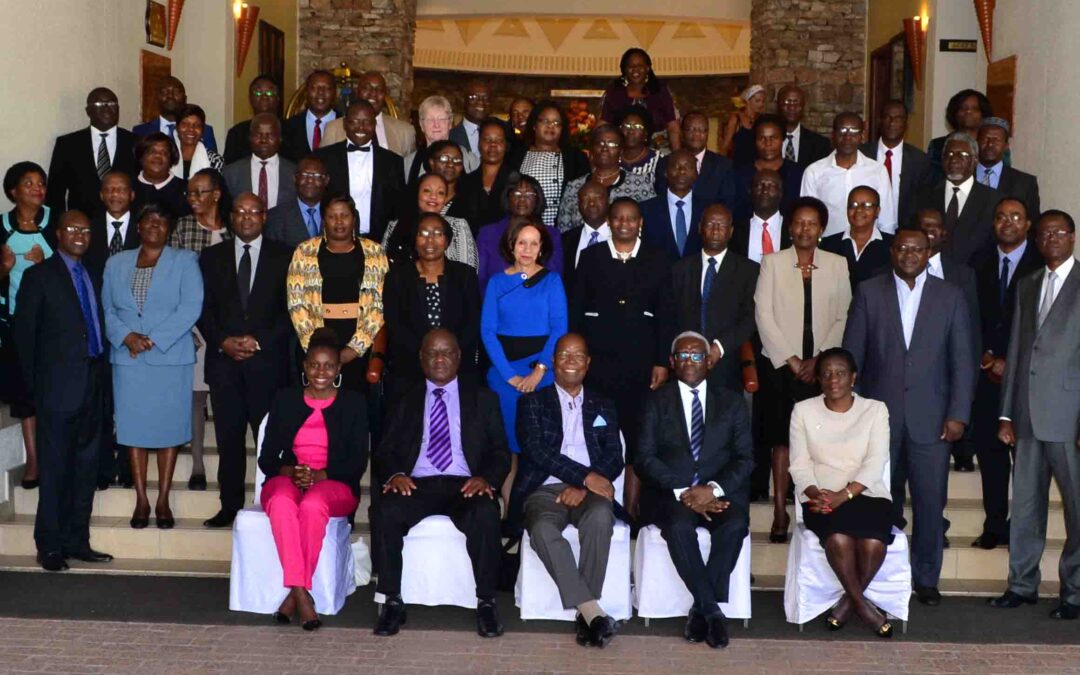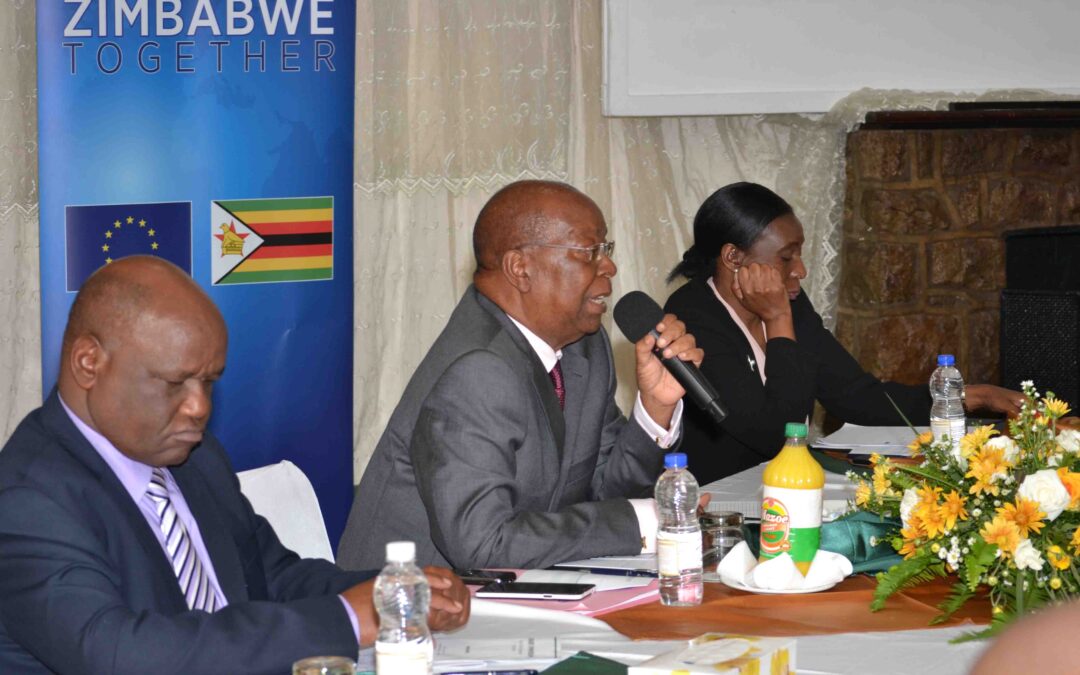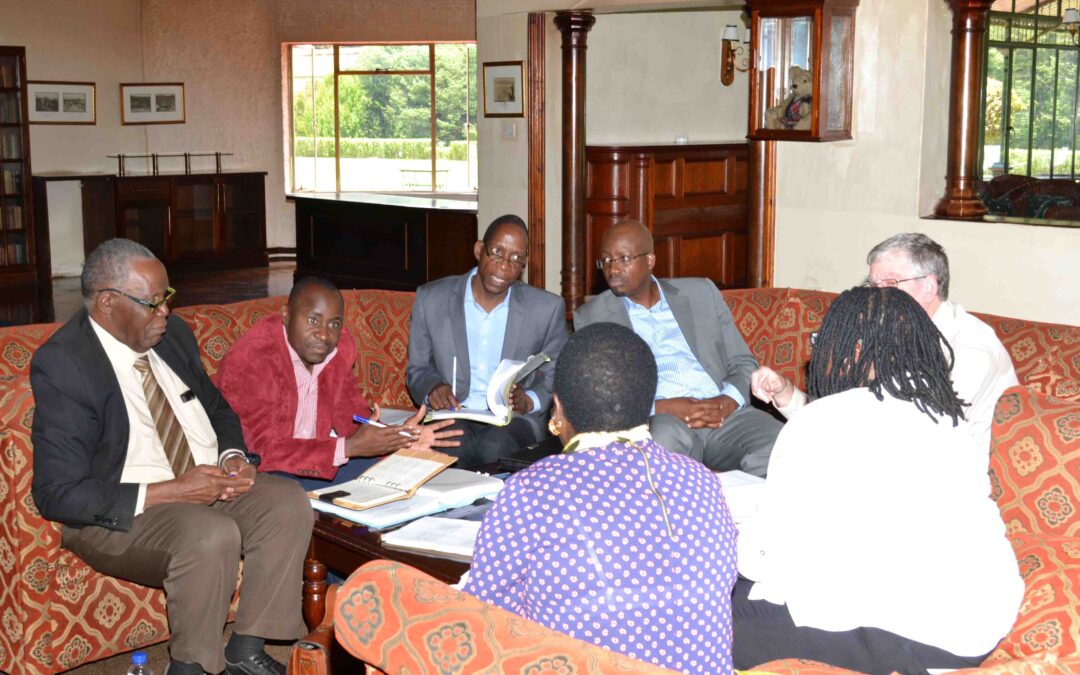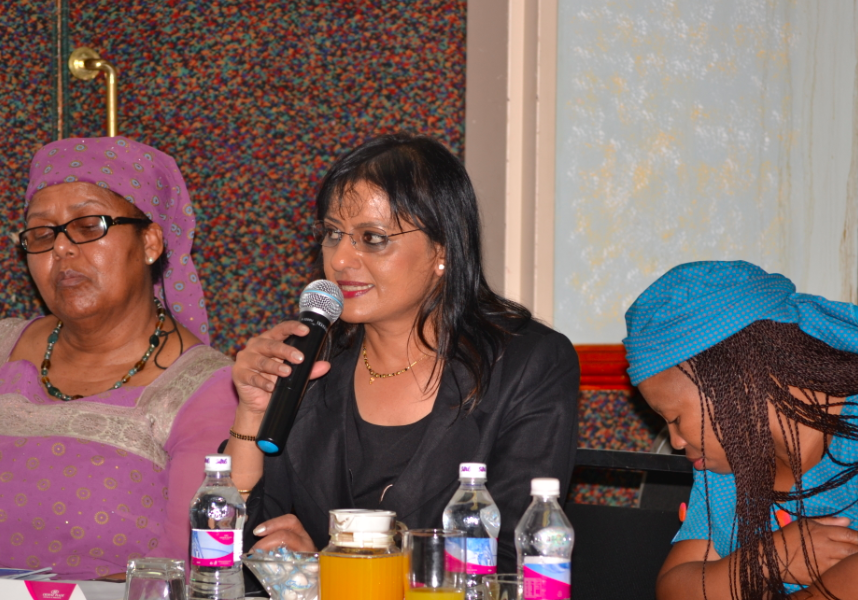
Jul 30, 2016 | News
The ICJ and the Judicial Service Commission of Zimbabwe, held a two-day Judicial Symposium for the end of the Second Term, at the Elephant Hills Hotel, Victoria Falls.
The subjects for discussion chosen by the judges reflect areas where judges felt the need for enlightenment.
In his opening remarks, the Deputy Chief Justice Malaba said that the purpose of this Symposium was to provide an opportunity for the judges to discuss and share ideas on the subjects chosen at the recreational environment.
The Symposium would serve to equip every judge with skills to feel confident in presiding over and disposing of cases fairly and expeditiously.
The former Chief Justice of South Africa Sandile Ngcobo delivered the keynote address which focused on Continued Judicial Education. Chief Justice Ngcobo stated that it was the collective responsibility of the judiciary to ensure it is sufficiently equipped to meet the demands of society and for the efficient dispensation of justice.
This would be achieved through continued judicial education.
Chief Justice Ngcobo was of the view that the importance of Continued Judicial Education lay beyond improving quality of justice but for the qualification of justice

Apr 2, 2016 | News
The ICJ and the Judicial Service Commission of Zimbabwe held the End of Term Symposium for the judiciary of Zimbabwe at the Troutbeck Inn in Nyanga, 31 March – 2 April 2016.
Chief Justice Chidyausiku in his opening remarks at the End of Term Symposium, stated that the Symposia are important because they give judges an opportunity to meet and engage with each other on various issues of interest or concern.
Additionally the purpose of the Symposium is to improve the quality of service in terms of judgments and the speedy outcome of cases.
In attendance at the Symposium were 72 delegates including judges from the Supreme Court, High Court and Labour Court, as well as representatives from the Law Society of Zimbabwe.
The programme included a joint session with all the courts in attendance, to discuss topics of judicial ethics and case management.

Jan 20, 2016 | News
The ICJ supported the convening of a three-day meeting of the Faculty of Law of the University of Zimbabwe. The meeting reviewed the content of the courses offered at the University with the view of aligning the subject matter to the new constitution.
The Dean of Law Mr Magade noted in his introduction that “this Curriculum Review gives us a fabulous opportunity to take a long and hard look at ourselves and self introspect and come up with suggestions on how to improve our curriculum. At the end of the day we need to produce a product or graduate that is fit for purpose.”
The meeting took place at the Troutbeck Inn in Nyanga from 18 to 20 January 2016 and congregated 30 academic staff members from the University including a curriculum expert, Dr Nziramasanga, from the Faculty of Education. Dr Mosito and Dr Dingake from the Lesotho and Botswana respectively also contributed to the review process.

Dec 11, 2015 | Events, News
On 10-11 December, the ICJ gathered leading jurists and human rights defenders in Harare, Zimbabwe to discuss measures needed to implement legal reform and change attitudes to eliminate sexual and gender based violence.
For International Human Rights Day (10 December), the ICJ organized high level panel discussions, chaired by ICJ Commissioner Justice Qinisile Mabuza.
Justice Mabuza, who is also a judge for the High Court of Swaziland and for the Common Market for Eastern and Southern Africa (COMESA) Court of Justice, set the tone for the discussions that followed in setting out the extent of the problem of sexual and gender based violence not only within Africa but also on a global scale.
One panel consisted of Judge Lillian Tiabtemwa-Ekrikubinza, Supreme Court Judge of Uganda; Magistrate Asha Ramlal of South Africa; Judge Lavender Makoni, High Court Judge of Zimbabwe; and Magistrate Polo Banyane from Lesotho.
This panel provided a judicial perspective from magistrates and judges from across the region, sharing their experiences and common problems encountered in tackling sexual and gender based violence in their jurisdictions.
The judges spoke about the need to adopt a gender analysis in judicial decision-making and to be conscious of the way in which pervasive gender stereotypes can influence even seemingly gender neutral decisions.
They also spoke of the practicalities in implementing domestic violence and sexual offences legislation as well as the challenges involved when this legislation does not exist.
Welekazi Stifole from Tshwaranang Legal Advocacy Centre; Kelvin Hazangwi from Padare (Men’s Forum on Gender) and Lisa Gormley, ICJ Consultant on women’s rights participated in a second panel.
The participants shared their perspectives and insights concerning reviewing legislation, identifying problems with evidence gathering, analyzing the international and regional frameworks covering gender based violence and in working with perpetrators and within communities to change cultural attitudes.
The second day of the gathering featured a consultative meeting on the ICJ’s forthcoming Practitioner’s Guide on Women’s Access to Justice for Gender-Based Violence.
ICJ expert consultant Lisa Gormley presented the Guide and participants shared their experiences in relation to its content, as well as developing strategies for its future implementation.
Representatives of civil society, judges, lawyers and law students participated in both events, contributing to a broader understanding of sexual and gender based violence issues and strengthening national and international networks of defenders of women’s rights.







